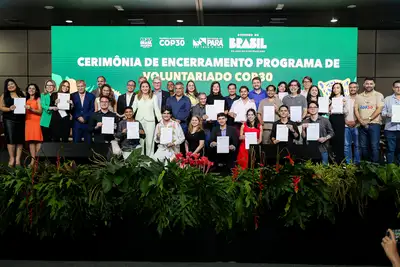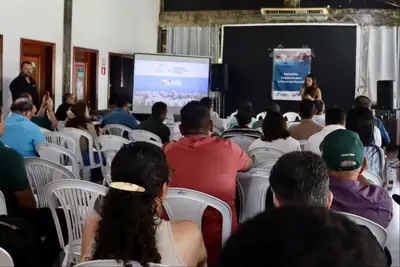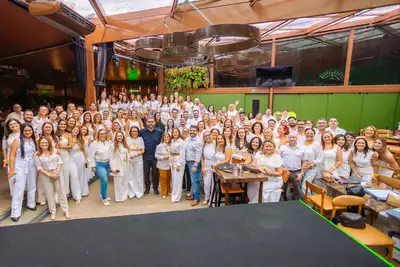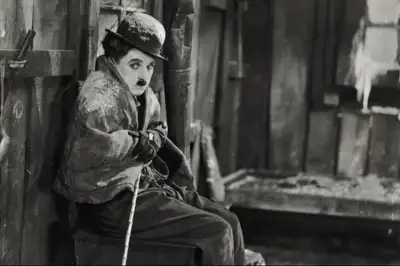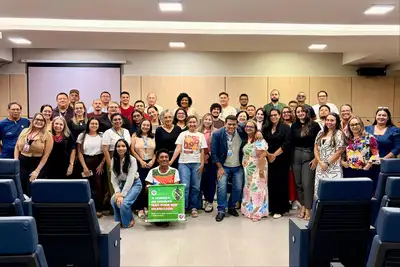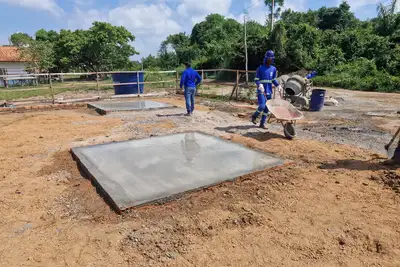Adepará delivers certificate of foot-and-mouth disease free zone without vaccination for the productive sector
Partnership among all links in the livestock chain was decisive for international achievement
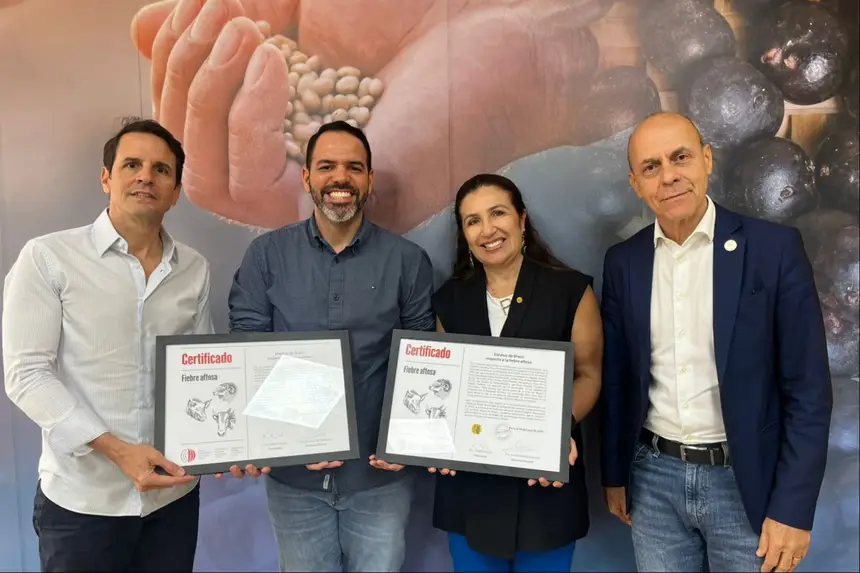
The Agricultural Defense Agency of the State of Pará (Adepará) delivered on Tuesday, the 21st, to representatives of the productive sector, the certificate from the World Organization for Animal Health (OIE) that recognizes Brazil as a foot-and-mouth disease free zone without vaccination.
The delivery of the document took place during a meeting at the Adepará headquarters in Belém, attended by the general director of Adepará, Jamir Macedo; the technical advisor of the Livestock Development Fund of the State of Pará (Fundepec), from the Federation of Agriculture of the State of Pará (Faepa), Rose Remor; the president of the National Union of Meat Industry and Companies (Uniec), Francisco Victer, and Daniel Freire, president of the Union of Meat and Derivatives Industries of the State of Pará (Sindicarne).
The recognition granted by the OIE positions Brazil — and Pará — at a new level in the international meat trade. The certification was formalized in May during the 92nd General Assembly of the OIE in France.
“We, as the Animal Defense Agency, were there in May representing Pará at this historic moment for this important productive chain, which generates wealth for our State. Now, we are sharing this achievement with everyone involved in this sector,” emphasized Jamir Macedo, general director of Adepará.
For Francisco Victer, president of Uniec, the new sanitary status is a symbol of international confidence in the work done in the field. “It is an achievement of enormous relevance. It shows that the world believes in Brazil's sanitary control and in the responsibility of our producers,” he stated.
Open doors for high-value markets
With the new certificate, Pará, which has a herd of more than 26 million heads, will be able to access demanding and high-value markets such as the United States, Japan, South Korea, and the European Union. The expectation is for an increase in exports and better valuation of Pará beef.
“The new sanitary status is a gateway to new and important markets, which already required the condition of being free from the disease without vaccination, so the perspective for Brazil and Pará is to find these incredible frontiers for Brazilian Pará beef. In the end, it represents more market, but fundamentally, better pricing for the product, which is the cattle, the meat, so what we can see is the reward for all this effort with better remuneration for the activity that each one performs in this productive process,” he explained.
Thirty years of work in the field
Rose Remor, technical advisor of Fundepec/Faepa, which brings together rural unions throughout the Pará territory, highlighted the fundamental role of rural producers in the process.
“It has been three decades of effort, vigilance, and awareness. The producer did their part: vaccinated, notified, and walked alongside us. This achievement is collective,” she emphasized.
She also highlighted the support of Adepará's veterinarians, the Ministry of Agriculture, and the investments from the state government, which strengthened the sanitary defense structure in Pará.
Sustainable meat with global quality
Daniel Freire, president of Sindicarne, emphasized that Pará's livestock already stands out for sustainability and quality. According to him, only 15.5% of the state's territory is used for animal production, demonstrating a commitment to the environment and social responsibility.
“Our meat already has quality. Now, with the new sanitary status, we have gained the endorsement that was missing to consolidate our presence in the main markets of the world,” he stated.
He recalled that the State produces about 1 million tons of meat per year but consumes only 250 thousand. The opening of new markets will be essential for the flow of less consumed cuts internally, such as muscle and round, and the appreciation of noble cuts like the sirloin in the European market.
“We export mainly to China, but we want to trade with the USA and Europe. The goal is to increase exports to enhance production and generate more income in the field,” he said.


